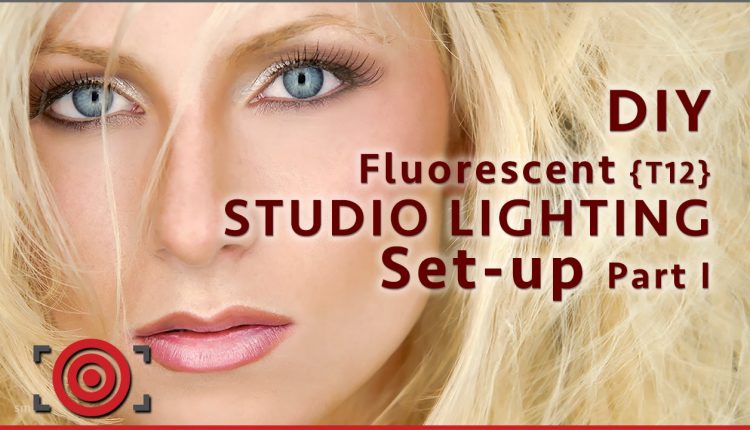DIY Fluorescent Photography Studio Lighting Setup – Part 1
Why spend several thousand dollars for hi-end kino-flo’s when you can build your own fluorescent studio lights for less than two hundred dollars?
View Part II –
View Part III (Energy Efficient T8 Bulbs) –
SUBSCRIBE so that you don’t miss NEW VIDEOS!
TOGKNOWLEDGE℠
Help me HELP YOU:
MY WEBSITE & BLOG
WANNA SEE MY GEAR?
SHOP FOR TOGSWAG℠
LET’S CONNECT!
– Like & Follow on FACEBOOK:
– Follow on TWITTER:
– Follow on INSTAGRAM:
– Check my boards on PINTEREST:
– Connect on LINKEDIN:
– Connect on GOOGLE+:
FTC Disclosure: No sponsors have paid for or provided equipment or material shown in this video
#ishootpeople #joeedelman

Amazing
Great tutorial. It's funny to see your earlier videos where you looked like your own father or at least elder brother. 😀
Amazing video. Thanks for not being selfish and keeping this excellent information to yourself! 🙂
how did you wire the lights to the plug?
Yes..where are the links for all the parts???
very good: very smart!
awesome!!! Thank you
NIce Demo.. thank you
do those fluorescents make the buzzing noise? Thanks
Thank you!
What bulbs do you use? Colour temp?
great tip.
Awesome, thank you very much!
I want to build this unit, you said that you put the link for the parts in the description section below, I don;'t see a description section. If anyone know where to find the link, could you tell me?
Shot with these lights lastnight and I will say it change the way I will light a subjust. Thank you very much for this video.
Seems like a cool studio setup, but any plans of a portable version?
Hey Joe, could a sheet be used to soften this light setup?
Awesome! Thank you very much for this!
Hi Joe, great videos. I cant seem to find where the materials are listed?
gud idea.. nice i using this light more useful n more cheaper then studio light thanks 🙂
dude just thank
Home Depot – but watch Part III in this series. It is an updated fixture and all of the purchasing information is linked in the comments of that video as well as on my blog.
Hi,Joe Edelman, thanks for sharing this! Could u please tell me where did u get the lighting fixture and how much is it?
Amazing! Thank you for sharing!
Not sure Marcus – maybe that could be your project! 🙂 You would need to create some type of case.
There is really no need – the quality of the light is almost identical to a soft box.
Joe can i do this with soft boxes
Awesome Video Joe! How would you make this rig portable?
Genius!
I assume a lot of people, trying to sell expensive stuff, will hate (or "shoot") you for these 3 vids… Congrats from my side! This videos are worth 1'000s of dollars… every beginner should watch 'em…
thank you so much for this video! its so helpful! i'm a student so i don't have a huge budget for a studio lighting and this video really helps me a lot!
Thank You Joe this is a great set of video's
Cheers
Don
Excellent video. Many thanks indeed for the information.
Cheers
Jim
Thank you sir for this wonderful Idea..
This is excellent, thank you.
Thanks!
Definitely use the T8 Bulbs – not the T12's – I have only shot vide with them at 30 frames per second so I can't speak for the faster frame rate but I see no reason why they wouldn't. I would take a camera to Home Depot or Lowes and just shoot a quick clip of their in store demos before you buy.
Hello Joe. Thanks for your work, it's inspiring, clear and helpful. I'm planning to set up a "video studio", basically something like a small photo studio, but for videos (adverts, interviews, etc.). I've worked with kino-flo as a gaffer on some movie sets, I love them, but they're definetly too expensive for my budget. I shoot my videos at 25,50 and 60 frames per second, depending on the situation. Do you think that a setup like yours would allow me shooting flicker-free? Thanks
Check out the end of the video as well as Part II and Part III. It's in there. With T12 bulbs you must shoot at a shutter speed of 1/125th or slower, With T8's (Part III) it doesn't matter.
The 24-70mm has great range Abigail but it is not ideal for people photography – especially not portraits, beauty and fashion like you see in my portfolio. You could get away with using the lens strictly at the 70mm focal length so that it is a short telephoto, but 100mm and up tends to give better compression of depth – shallower depth of field and allows you to work at a friendly distance without invading your subjects space.
Thanks Joe! Great share. I was literally just looking at these at Lowes and considering setting something up like this. You just saved me a lot of time! Cheers
Awesome video thanks for sharing.
A tip that I found was to wrap your bulbs in clear tape. It is the kind that is usually used to tape boxes for shipping. This will help to control the contents that are inside the tube just in case the bulb breaks.
Continued success. Your photos look awesome!
awesome video thanks i subbed because of it. but i had a question Im just starting ut and i want to know what would be a good lens for studio photography with your setup?
I am going to build one this week